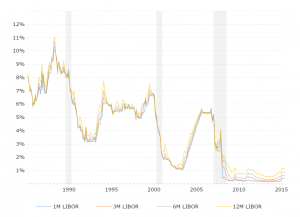Possibilities are, you have actually seen commercials boasting the benefits of a reverse mortgage: "Let your house pay you a month-to-month dream retirement earnings!" Sounds great, best? These claims make a reverse home loan sound nearly too good to be true for senior house owners. However are they? Let's take a more detailed look. A reverse mortgage is a type of loan that utilizes your home equity to provide the funds for the loan itself.
It's essentially a chance for senior citizens to take advantage of the equity they've developed over many years of paying their home loan and turn it into a loan on their own. A reverse mortgage works like a routine home loan because you have to use and get approved for it by a lending institution.
But with a reverse home loan, you don't make payments on your house's principal like you would with a routine mortgageyou take payments from the equity you've constructed. You see, the bank is lending you back the cash you've currently paid on your home but charging you interest at the same time.
Appears easy enough, right? However here comes the cringeworthy fact: If you pass away prior to you've sold your house, those you leave are stuck with two choices. They can either pay off the complete reverse home loan and all the interest that's piled up for many years, or surrender your house to the bank.
Like other kinds of home mortgages, there are different kinds of reverse home loans. While they all basically work the same method, there are three main ones to understand about: The most common reverse mortgage is the House Equity Conversion Home Mortgage (HECM). HECMs were created in 1988 to help older Americans make ends meet by enabling them to take advantage of the equity of their houses without having to leave.
Examine This Report about Who Took Over Taylor Bean And Whitaker Mortgages
Some folks will use it to spend for bills, holidays, home restorations or even to pay off the staying quantity on their regular mortgagewhich is nuts! And the repercussions can be big. HECM loans are kept on a tight leash by the Federal Real Estate Administration (FHA.) They don't want you to default on your home loan, so because of that, you won't receive a reverse home mortgage if your home is worth more than a particular amount.1 And if you do get approved for an HECM, you'll pay a large home mortgage insurance coverage premium that protects the lending institution (not you) against any losses - how do interest rates affect mortgages.
They're provided from independently owned or run business. And because they're not controlled or guaranteed by the government, they can draw house owners in with promises of greater loan amountsbut with the catch of much higher interest rates than those federally guaranteed reverse mortgages. They'll even use reverse mortgages that allow house owners to obtain more of their equity or consist of homes that exceed the federal optimum amount.
A single-purpose reverse home mortgage is offered by federal government companies at the state and local level, and by nonprofit groups too. It's a wesley timeshare cancellation reviews kind of reverse home loan that puts rules and limitations on how you can utilize the money from the loan. (So you can't invest it on a fancy vacation!) Usually, single-purpose reverse home loans can just be used to make home tax payments or spend for house repair work.
The thing to keep in mind is that the loan provider needs to approve how the cash will be utilized before the loan is provided the OK. These loans aren't federally guaranteed either, so loan providers do not need to charge home mortgage insurance coverage premiums. But considering that the cash from a single-purpose reverse home loan needs to be utilized in a particular method, they're typically much smaller in their quantity than HECM loans or timeshare nightmare proprietary reverse home mortgages.
Own a paid-off (or a minimum of significantly paid-down) house. Have this home as your primary home. Owe zero federal debts. Have the cash circulation to continue paying home taxes, HOA fees, insurance, upkeep and other home expenditures. And it's not simply you that has to qualifyyour home also has to meet certain requirements.

All About Which Of The Following Statements Is True Regarding Home Mortgages?
The HECM program likewise enables reverse mortgages on condominiums approved by the Department of Housing and Urban Development. Prior to you go and sign the documents on a reverse mortgage, have a look at these 4 significant drawbacks: You might be thinking of securing a reverse mortgage because you feel great borrowing versus your home.

Let's break it down like this: Imagine having $100 in the bank, but when you go to withdraw that $100 in cash, the bank just gives you $60and they charge you interest on that $60 from the $40 they keep. If you would not take that "offer" from the bank, why in the world would you wish to do it with your home you've invested decades paying a home mortgage on? However that's precisely what a reverse mortgage does.
Why? Because there are fees to pay, which leads us to our next point. Reverse home mortgages are packed with additional expenses. And many customers choose to pay these charges with the loan they will getinstead of paying them expense. The important things is, this get rid of timeshare costs you more in the long run! Lenders can charge up to 2% of a house's value in an paid up front.
So on a $200,000 house, that's a $1,000 annual cost after you've paid $4,000 upfront obviously!$14 on a reverse mortgage are like those for a routine mortgage and include things like home appraisals, credit checks and processing fees. So prior to you know it, you've sucked out thousands from your reverse home mortgage prior to you even see the very first dime! And given that a reverse mortgage is just letting you use a portion the worth of your home anyhow, what happens when you reach that limitation? The money stops.
So the amount of cash you owe goes up every year, each month and every day up until the loan is paid off. The advertisers promoting reverse home mortgages enjoy to spin the old line: "You will never owe more than your home is worth!" But that's not exactly true because of those high rate of interest.
9 Easy Facts About How Many Types Of Mortgages Are There Described
Let's say you live until you're 87. When you pass away, your estate owes $338,635 on your $200,000 home. So rather of having a paid-for home to pass on to your enjoyed ones after you're gone, they'll be stuck to a $238,635 bill. Chances are they'll need to sell the home in order to settle the loan's balance with the bank if they can't afford to pay it.
If you're investing more than 25% of your earnings on taxes, HOA charges, and family expenses, that suggests you're house poor. Connect to one of our Backed Local Providers and they'll assist you browse your alternatives. If a reverse mortgage lending institution informs you, "You will not lose your home," they're not being straight with you.
Think about the factors you were considering getting a reverse home mortgage in the first place: Your spending plan is too tight, you can't afford your daily bills, and you do not have anywhere else to turn for some extra cash. All of a sudden, you've drawn that last reverse mortgage payment, and then the next tax costs comes around.